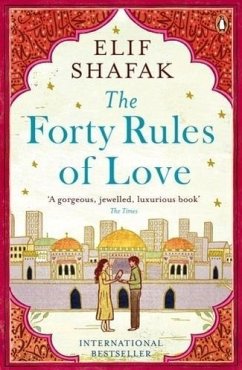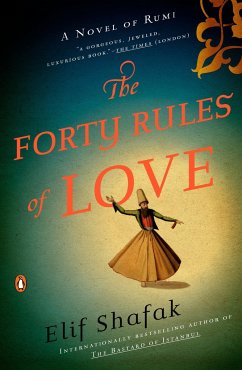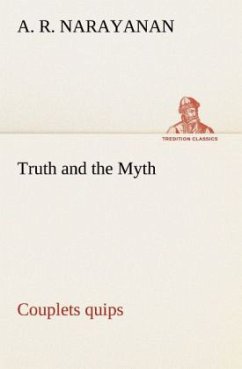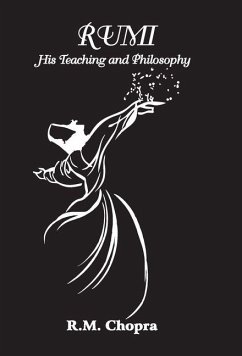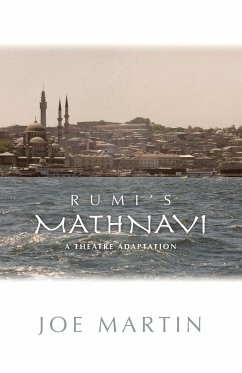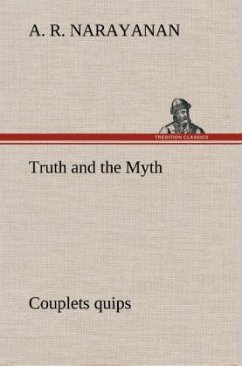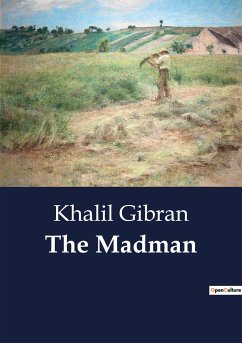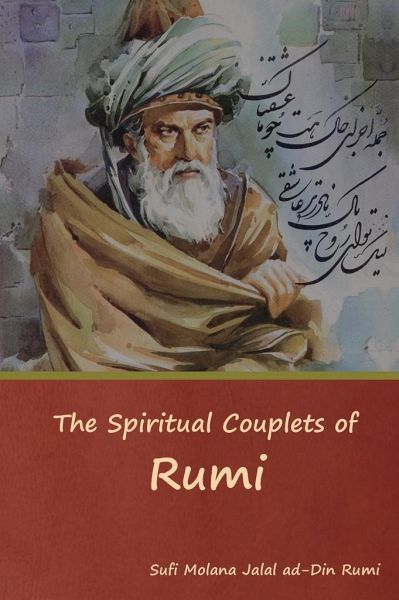
The Spiritual Couplets of Rumi
Versandkostenfrei!
Versandfertig in 1-2 Wochen
29,99 €
inkl. MwSt.

PAYBACK Punkte
15 °P sammeln!
Jalal ad-Din Muhammad Rumi also known as Jalal ad-Din Muhammad Balkhi Mevlana/Mawlana ("our master"), and more popularly simply as Rumi (30 September 1207 – 17 December 1273), was a 13th-century Persian poet, jurist, Islamic scholar, theologian, and Sufi mystic originally from Greater Khorasan. Rumi's influence transcends national borders and ethnic divisions: Iranians, Tajiks, Turks, Greeks, Pashtuns, other Central Asian Muslims, and the Muslims of South Asia have greatly appreciated his spiritual legacy for the past seven centuries. His poems have been widely translated into many of the wo...
Jalal ad-Din Muhammad Rumi also known as Jalal ad-Din Muhammad Balkhi Mevlana/Mawlana ("our master"), and more popularly simply as Rumi (30 September 1207 – 17 December 1273), was a 13th-century Persian poet, jurist, Islamic scholar, theologian, and Sufi mystic originally from Greater Khorasan. Rumi's influence transcends national borders and ethnic divisions: Iranians, Tajiks, Turks, Greeks, Pashtuns, other Central Asian Muslims, and the Muslims of South Asia have greatly appreciated his spiritual legacy for the past seven centuries. His poems have been widely translated into many of the world's languages and transposed into various formats. Rumi has been described as the "most popular poet" and the "best selling poet" in the United States. Rumi's works are written mostly in Persian, but occasionally he also used Turkish, Arabic, and Cappadocian Greek in his verse. His Masnavi (Mathnawi), composed in Konya, is considered one of the greatest poems of the Persian language. His works are widely read today in their original language across Greater Iran and the Persian-speaking world. Translations of his works are very popular, most notably in Turkey, Azerbaijan, the United States, and South Asia. His poetry has influenced not only Persian literature, but also Turkish, Ottoman Turkish, Azerbaijani, as well as the literature of some other Turkic, Iranian, and Indo-Aryan languages including Chagatai, Urdu and Pashto. (wikipedia.org) This is the best known work of Mevlana Rumi consisting of 24,660 couplets in seven books. Rumi himself defined his work as a work of destruction, destruction of the worldly for the sake of embracing the Divine. He warns the reader in advance to be prepared to let go of everything: Every venture one's life may replete Mathnavi's purpose is the Great Defeat. Set afire, burning with cleansing heat, On the anvil, egos ply and beat. This book, if you open, read, entreat Your life, a mendicant's, in the street.



